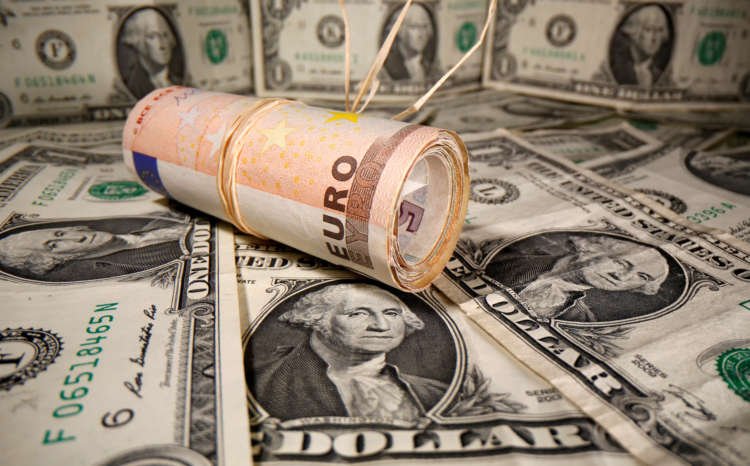Euro hits two-month low against dollar, hovers above $1.20
Published by linker 5
Posted on February 3, 2021
3 min readLast updated: January 21, 2026

Published by linker 5
Posted on February 3, 2021
3 min readLast updated: January 21, 2026

By Ritvik Carvalho
LONDON (Reuters) – The euro dropped to a two-month low against the dollar on Wednesday, trading just above $1.20, as investors looked to a widening disparity between the strength of the U.S. and European pandemic recoveries.
The view was bolstered by moves in Washington toward fast-tracking more stimulus spending, in contrast with concerns about extended European lockdowns and expectations for a decline in euro zone growth this quarter.
The euro was down 0.3% at $1.2013 against the dollar by midday in London.
Bond and stock markets cheered news that Italian President Sergio Mattarella was set to ask former European Central Bank chief Mario Draghi to form a government of national unity, but the euro largely shrugged it off.
“Draghi’s acceptance of a mandate and indications of a majority backing him will likely be welcomed by markets and may give some further support to European assets,” ING said in a note to clients.
“That said, the recent political turmoil in Italy has not generated any risk premia build-up on EUR/USD or EUR/CHF: thus, the upside potential from the end of the government crisis may also be somewhat contained.”
The broader dollar index was up 0.15% at 91.238 after rising to a two-month high of 91.283 in the previous session.
The dollar’s advances come despite a rally in equities amid improving risk sentiment, defying the currency’s historical inverse directional relationship with stocks.
However, many analysts expect the correlation to reassert itself as the year progresses, and for the dollar to decline as global growth recovers amid massive fiscal stimulus and ultra-easy monetary policy.
Elsewhere, the Japanese yen traded down 0.1% at 105.06 against the dollar,. The dollar has benefited from a massive bout of short-covering, especially against the yen where hedge funds had racked up their biggest short bets against the greenback since October 2016.
“It’s been a nice run for the yen in terms of strength, but I think there’s maybe some tiring of that move and some retracement,” said Bart Wakabayashi, Tokyo branch manager of State Street Bank and Trust.
“I think 105.50 is a nice target, but I don’t seen any real reasons right now that that move would be extended further.”
Many see the dollar’s rebound since early last month as a correction after its relentless decline last year, although some think the dollar’s new-found strength could reflect a retreat of the bearish sentiment on the currency.
The dollar index has recovered 1.2% this year after an almost 7% decline in 2020.
The New Zealand dollar was a standout Wednesday after data showed the county’s jobless rate unexpectedly dropped, which was seen as ruling out prospects for further central bank rate cuts.
The kiwi advanced as much as 0.4% to 72.21 U.S. cents in Asia trading hours, backing away from those levels in London trading.
The Australian dollar added 0.1% to 76.14 U.S. cents, looking to snap a three-day decline.
(Reporting by Ritvik Carvalho; additional reporting by Kevin Buckland in Tokyo; editing by Giles Elgood, Larry King)
Explore more articles in the Trading category











